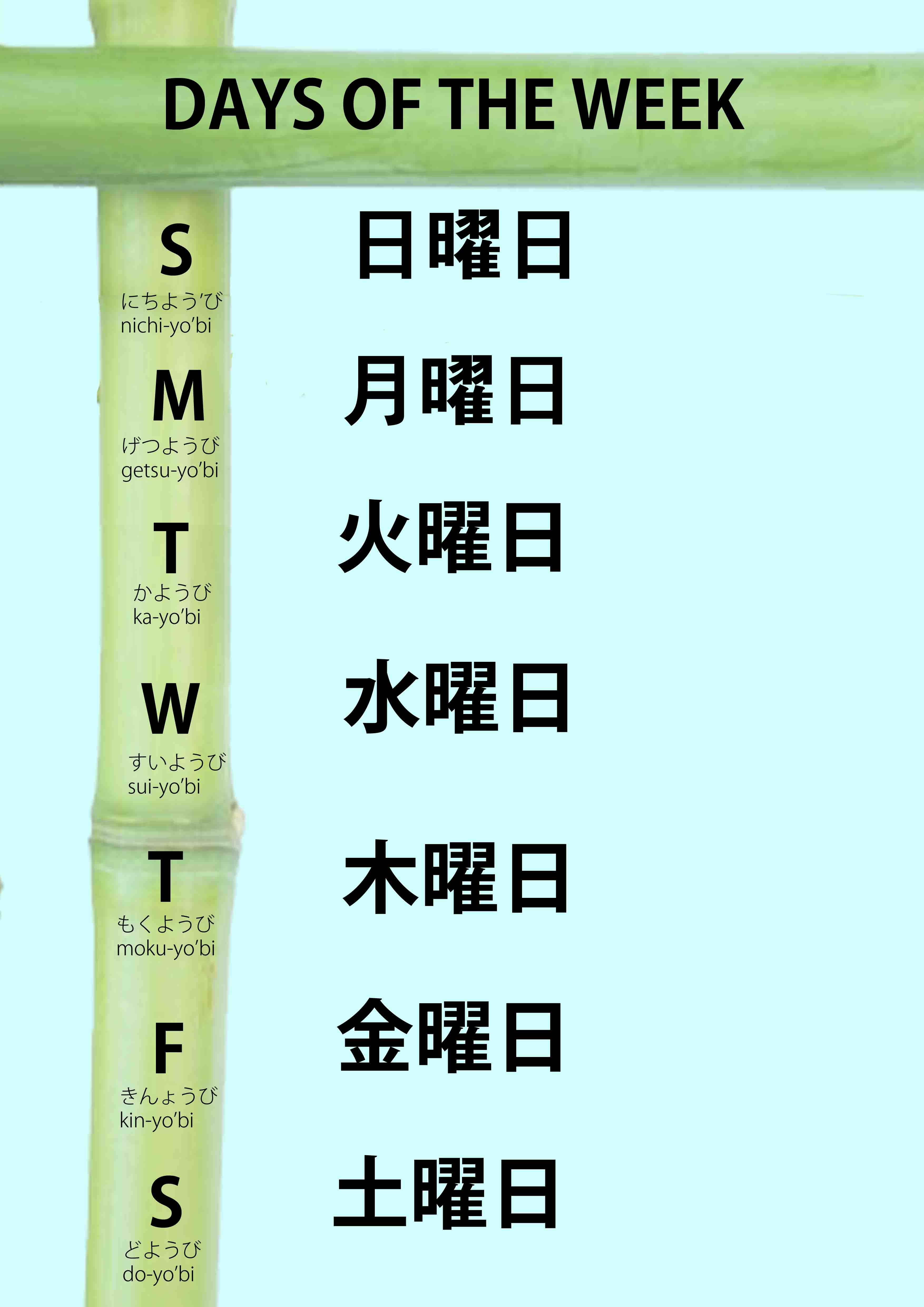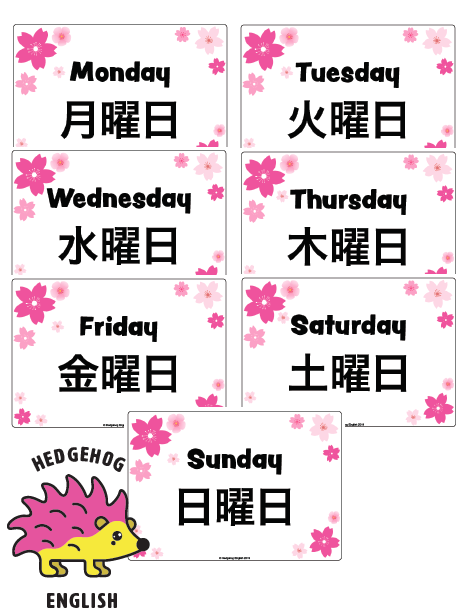

On the other hand, the Anglo-Saxon ancestors of the English kept Sunday, Monday, and “Saturn’s day”, but otherwise substituted their own equivalent gods for those of Rome. The Romance languages listed above kept most of the Latin names, but changed the names for Sunday, which was replaced by a name meaning “the Lord’s Day” and for Saturday, which was named after the Sabbath. Let’s take a look at these five heavenly bodies: All you have to do to name these planets in Japanese, is take the kanji above and add 星 which can mean “star” or “planet”. But what of the other days? Here’s the interesting thing – they are named after the five visible planets. This may seem like something of a coincidence. You may have noticed by now that in both English and Japanese the first two days of the week are named after the sun and the moon.

金 apparently is derived from an image of metal nuggets buried under the ground, while 土 may show a plant growing from the earth.

Squint your eyes a bit and perhaps you can imagine how primitive sketches of the sun, and fire, and a tree might develop into their kanji representations. It doesn’t take too much imagination to see how the kanji 月 derives from a pictograph of a crescent moon, or 水 from a splash of water.


 0 kommentar(er)
0 kommentar(er)
